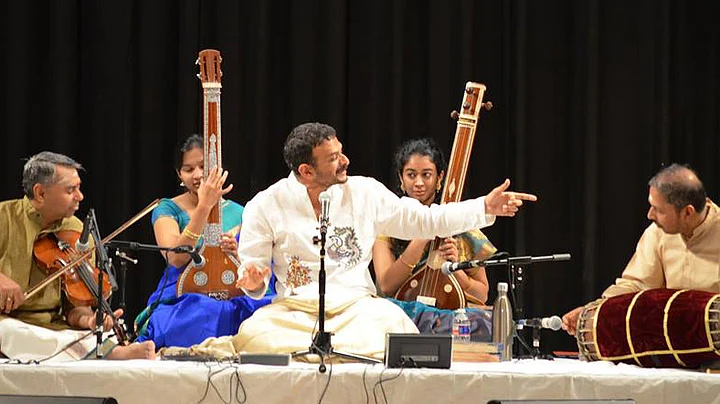I would like to inform all of you that henceforth (beginning December 2015) I will not be singing in Chennai’s December Music Season... Unfortunately at the place I am today I am unable to reconcile my musical journey with that of the December season.
— TM Krishna, June 10, 2015, Facebook
This is perhaps the most difficult piece I have written in quite some time. It is about a friend — at least one generation younger — who I greatly admire and respect for his brilliance and the values he steadfastly holds on to; especially at a time when mediocrity is celebrated more than accomplishment, and values that are traditionally dear to decent human beings across the globe, just don’t count in most walks of public life.
Democratising Classical Music
I must confess, however, that I can’t write objectively about Thodur Madabusi Krishna (TMK as he is affectionately called), because I am sold to his divine music. We graduated from the same institution, the Vivekananda College in Chennai (Krishna pursued Economics and I majored in Physics). An added problem is that we are ethnically linked; both are TamBrams, that too from the same clannish Iyengar community.
I cannot remain unexercised about Krishna’s latest decision not to sing at the next December ‘season’. This is a bombshell for all his fans, including yours truly. To be factual, however, this was just waiting to happen, if one considered all that has been happening surrounding the career of this Carnatic music icon for the past few years.
Krishna has been carrying on a relentless campaign to ‘democratise’ Carnatic music, which, in his view, remains too exclusive and elitist, and needs a surgery of sorts. He has been propagating his theory that a Brahmin-dominated art needs to throw open its doors to the under-privileged, especially those who live in the Chennai slums.
Brahmanism and Carnatic Music
On the face of it, Krishna’s stance is unexceptionable. He has done his own bid in the form of free concerts all over the city and elsewhere. He also sings mainly in the mornings during December — possibly to attract the poor and the lower middle classes, who cannot afford the ticketed evening programmes — when there is a hurricane of concerts in about 50 venues. In a sense, Krishna has had his way. Many sabhas (music organisations) — including the hallowed Music Academy – the Lords and Wimbledon of Carnatic music — still keep an open door for him because they are conscious of his star value.
Not that they agree with him on what he says about throwing open music to those who have been allegedly kept away. But they know that a music festival without Krishna is like Hamlet without the Prince of Denmark or a Wimbledon without Djokovic and Federer.
Krishna has a huge following. An equal number despise him. He is accused of politicising music. He is reviled as an attention grabber, who enjoys being in the news all the time. His detractors say that he is wrong in saying that the talented non-Brahmins are being deliberately kept out of Carnatic music. This is no government job which has to be regulated on a reservation basis. And there is no violation of natural justice. Krishna-haters say that he is trying to create a controversy where there is none. It is difficult to agree wholly with either Krishna or his critics.
The Magnetic Krishna
Krishna, who is about to turn 40, had his early education at The School, Chennai, run by the J Krishnamurti Foundation — accounting for much of his perceptions and attitudes towards life. He is a great singer. For those who know Carnatic music history, he is in the same league as Ariyakudi, Semmangudi, GNB, Mahrajapuram and Balamurali, who all adorned music in the South to the delight of thousands of Carnatic music aficionados. He is known for his bhavam (soulful singing) in rendering the most difficult and intricate keerthanai (song). His is unhurried and leisurely music.
It is with great trepidation that I choose to call Krishna a maverick. This means no offence to him. But the English language does not offer me any other expression to describe a man who sometimes starts a concert with a ragam-thanam-pallavi (RTP), which is always performed towards the end of a recital, and one who sings the raga without completing the keerthanai (text of a song) and moves on to the next item, leaving the perplexed audience to fill in with their own imagination.
That is Krishna. He can both enchant and exasperate you. I cannot, however, ignore him, because he is like a magnet.
(The writer is a former CBI Director, and a music buff.)
